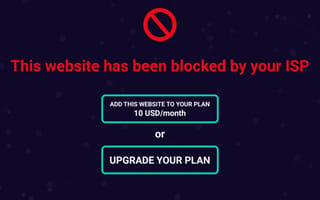
The United States has one of the most enviable internet economies in the entire world — and it’s at stake.
On Thursday, the Federal Communications Commission (FCC), headed by former Verizon lawyer-turned-commissioner Ajit Pai, is voting to end net neutrality and the internet as we know it.
The rollback of the Title II regulations — which require internet service providers (ISPs) to treat all traffic equally — would be a huge blow to the technology industry, shuttering the openness of the internet and giving broadband providers such as Comcast and Verizon the ability to block websites, slow services and manipulate online content.
That’s why on Cyber Monday, 200 tech companies (10 of which are headquartered in Boston) sent a letter to Pai asking him to rethink his plans and consider the impact a loss of net neutrality would have across industries.
Runkeeper, a Boston-based mobile fitness platform represented in this letter by members of their leadership team, has been particularly outspoken about the vote. CEO Dan Smith said a repeal of net neutrality would stifle entrepreneurship.
“Young people across the ecosystem are able to launch services using pay-as-you-go infrastructure and small amounts of seed capital raised from friends and family,” Smith said. “The businesses that succeed do so in part because they enjoy a level playing field, allowing them to compete and disrupt large, well-financed companies across industries.”
But a repeal of net neutrality would effectively ‘repeal’ the level playing field and cast a vote against entrepreneurship, Smith said.
“It tips the scale in favor of large companies that are willing and able to pay ISP-imposed tariffs,” Smith said. “It stifles the disruptive upstarts that are critical to the long-term U.S. economy and our entrepreneurial leadership position in the world.”
Smith is referencing the financial gains ISPs would likely reap if net neutrality were a thing of the past.
Currently, Title II regulations state that ISPs do not have the right to control how customers use their services, meaning even though you might pay them a monthly fee for use of their bandwidth, they cannot prevent you from viewing a certain website or uploading and downloading whatever content you wish to save.
If net neutrality is repealed, however, future innovators wouldn’t be able to get new products onto the internet without first negotiating with each ISP and paying a fee. That means consumers no longer decide which businesses flourish: instead, service providers could push segments of the internet into theoretical ‘fast’ and ‘slow’ lanes, deciding which companies will succeed online and which will be muted.
This development would be devastating to Boston’s tech ecosystem and for startups, said Kunal Bhatia, co-founder of SlidesUp, a conference planning company.
“In this scenario, startups would be forced to pay for ‘prioritized access,’ or negotiate with ISPs to provide faster access speeds to their data,” Bhatia said. “Access to this data makes or breaks the experience of using products and services and therefore erodes the ability for startups to bring new innovations to market.”
This would leave startups with two choices, Bhatia said: Either don’t start at all or raise more money faster than you would normally need it.
“With the first choice, we stifle innovation,” Bhatia said. “The second choice leads startups to amplify both the good and bad aspects of their business without first having room to validate product-market fit. Thus, bootstrapped startups and those who defer raising capital go away, and many more venture-backed startups would prematurely fail.”
TripAdvisor said without net neutrality, they might not exist at all.
"TripAdvisor was founded 17 years ago in a small room above a pizza shop with only a few employees and a very limited budget," said Kevin Carter, TripAdvisor spokesperson. "Despite these limitations, we had three critical factors in our favor — a service that consumers were excited about, a great team and a free and open internet where every website, big or small, was equally available to potential users."
Today, Carter added, that small startup with the idea of crowd-sourcing travel information has grown into the world's largest travel website.
While it’s still unclear how the vote will pan out this week (some expect the repeal to pass by a 3-2 margin on party lines), one thing is certain: a loss of net neutrality will impact anyone who uses the internet.
It will be tougher for innovators to compete and grow their business and ideas, and it could alter consumers’ ability to do simple things we now take for granted, such as changing a Facebook status or streaming a movie on Netflix. It could even hurt students’ ability to access instructional software.
That’s why startups large and small, across political and economic lines, are standing together and speaking out about net neutrality. Oh, and Tim Berners-Lee, creator of the World Wide Web — he opposes the repeal, too, and penned a few eloquent words on the subject in a Medium post:
“I want an internet where content businesses grow according to their quality, not their ability to pay to ride in the fast lane,” Bernes-Lee said. “I want an internet where ideas spread because they’re inspiring, not because they align with the views of telecoms executives. I want an internet where consumers decide what succeeds online and where ISPs focus on providing the best connectivity.”
If that sounds like the kind of internet you want, visit Battle for the Net to learn more about how you can aid the fight for net neutrality.



